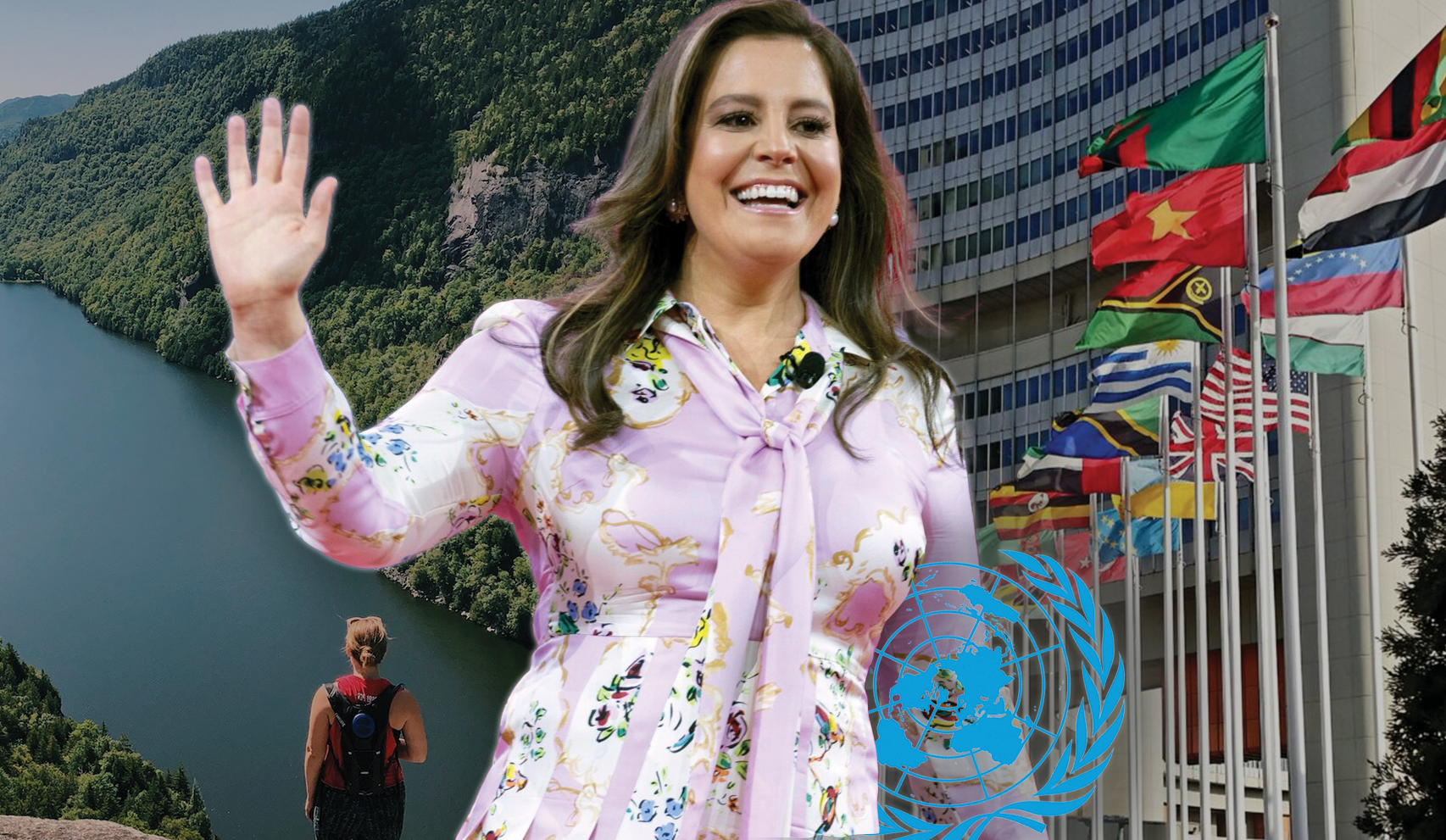Stefanik Moves Up, Triggers Special Election Speculation
Longtime North County Congresswomen Elise Stefanik was nominated by President-Elect Donald Trump to be his ambassador to the United Nations on Monday. If confirmed by the Senate in January, Stefanik will resign the seat that she’s held since 2015, triggering a special election in New York’s 21st congressional district, in which St. Lawrence sits.
Hours after the nomination went public, Stefanik released a statement announcing that she accepted Trump’s offer. “I am truly honored to earn President Trump’s nomination to serve in his Cabinet as U.S. Ambassador to the United Nations,” wrote Stefanik. “During my conversation with President Trump, I shared how deeply humbled I am to accept his nomination.”
Stefanik indicated that she would take an “America first” peace approach at the U.N. She had previously criticized what she calls the Biden administration’s “failure” to address antisemitism which she believes “has diminished our standing in the eyes of both allies and adversaries.”
SLU Political Science Professor James Sieja said that Stefanik likely took the position so she could prepare for higher office eventually. “Stefanik likely took the U.N. ambassadorship as a stepping stone to becoming the first female Secretary of Defense,” he said. “The 2024 election was, in a way, a determination about who would be the first female Defense secretary, Stefanik or Liz Cheney, the Republican whom Harris promised by all but name to put in her Cabinet.”
Andrew Horne ’25, who worked on Stefanik’s most recent re-election campaign, thinks she’s a good pick for the role. “She’s crazy smart [and] she graduated Harvard law so I think international politics will suite her well,” said Horne. “She’s got an interesting blend of new conservative politics on the foreign policy side so I’m interested to see how it plays out [and] there could be some interesting security council precedents in trying to bring the end of the Ukraine war.”
In New York State, the governor is required by the constitution to declare a special election within ten days of a U.S. House seat becoming vacant. The election itself takes place around three months after that. However, unlike a normal congressional race, there is no primary. Instead, officials from the Republican, Democratic, Conservative, and Working Families parties will choose their candidates on their own.
Horne said that once a special election comes, he would gladly campaign again. “Working with Elise was a blast,” he said. “I am definitely interested in getting involved in [the] campaign of the Republican nominee, because it’s [a] great experience and great for New York’s 21st district.”
The North Country last held a special election in 2009 after Representative John McHugh joined the Obama administration as secretary of the army. Sieja said that during that race Republicans and Conservatives failed to agree on a candidate. “Dede Scozzafava was the Republican nominee, and Doug Hoffman was the Conservative nominee, [they] split the vote on the right and delivered the seat to Bill Owens, a Democrat,” said Sieja.
New York State Senators Dan Stec and Mark Walczyk are two potential picks for the Republicans. That could set up a situation like 2009 where the candidate who didn’t get the nod ran on another party’s line, something Sieja said they would like to avoid. “Republican officials may work with them to find a compromise candidate like Assemblyman Scott Gray,” said Sieja.
Republicans are likely to hold a slim majority in the House, giving them a three to four vote cushion — meaning that they can’t afford to lose this seat to the Democrats. Especially as Trump continues to refer to his Republican’s legislative trifecta — meaning control of the House, Senate, and Presidency — as a “national mandate.”
Because of the projected razor thin margin, NY 21’s special election could garner national attention if Democrats are able to name a competent challenger.
On the other side names like Paula Collins and Tedra Cobb are Democrats who could throw their hats in the ring. Earlier this month Collins challenged Stefanik on the Democratic and Working Families lines and Tedra Cobb ran against Stefanik twice in 2018 and 2020. Since both previously ran, they have the advantage of already having a campaign apparatus, or at least the understanding of how to start one in the North Country.
However, Sieja said that the only Democrat he sees having a chance at winning the election is Billy Jones, a 4-term state assemblyman from the Plattsburgh area. “Jones would clearly be the best recruit for Democrats,” he said. Jones has been a popular state legislator, winning his most recent contested election by more than 20 percentage points.
Eliza Brown ’25 volunteered with the Collins campaign this past election. She said that Stefanik’s hold on the region is partially because of the state Democratic party’s lack of support for candidates in the region. “This is a rare opportunity to see a region that they have largely ignored be reinvested in,” she said. “I’m excited to see what might be possible for our local party when provided greater resources.”
Brown said that she, and the SLU Democrats club she leads, are conditionally ready to help the next democratic nominee campaign. “It will be dependent on who is selected as the Democratic candidate,” said Brown. “We would like to see someone chosen who aligns with our progressive values and understands this district’s needs.”
The NY 21 special election is almost certainly going to be held during the spring, meaning that, come commencement, SLU students will have had front row seats to a pair of congressional elections this year. Because the seat isn’t technically vacant until January, it is unlikely that any public developments in the race will be made until then.



